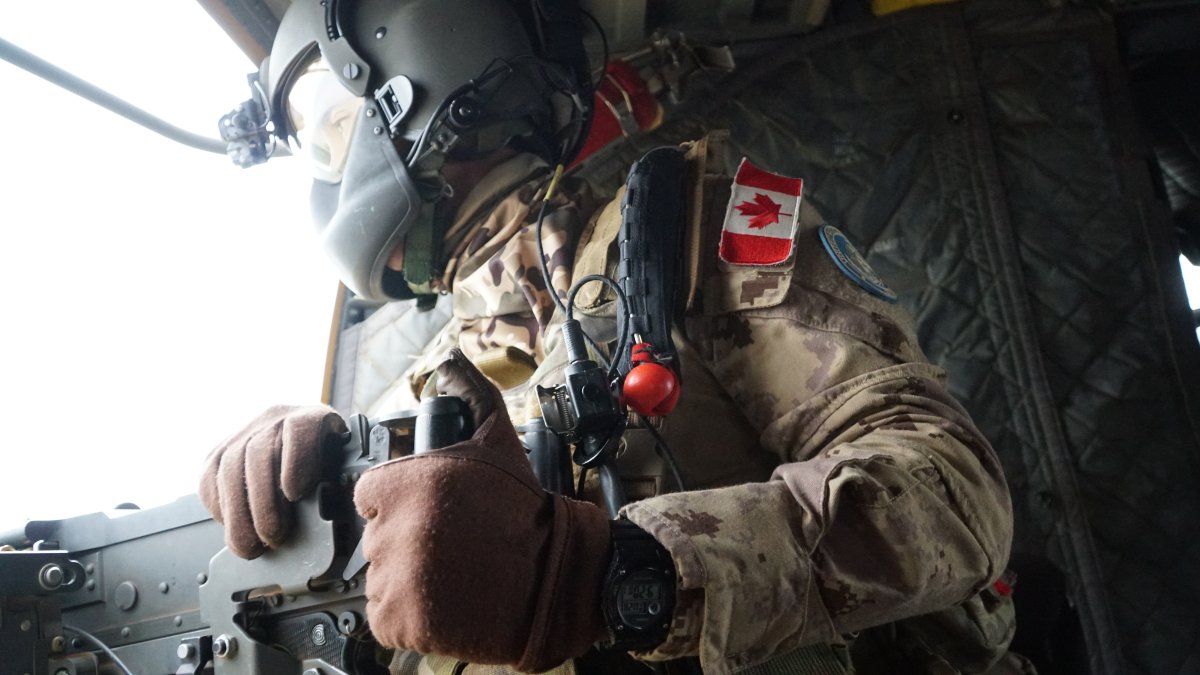In some ways, Canada’s United Nations base in Mali, known as “Camp Castor,” feels like a small town.

There’s the local pub, the “Castor Bar,” which offers foosball, darts and karaoke. (The bar does not serve alcohol, however, which for some may remove an important precursor to the karaoke).
There’s a barbershop, a corner store and an outdoor cinema. And with a population of more than 1,000 residents, there are also plenty of homes — or more specifically, hundreds of “modular accommodation units,” which are basically converted shipping containers filled with beds.
Unlike a typical Canadian town, however, residents of Camp Castor walk around with assault rifles and commute in Griffon helicopters — a reflection of the threat that exists just outside their base camp walls.
Mali is home to the UN’s deadliest peacekeeping operation, facing an insurgency from a patchwork of different rebel and jihadist groups.
In response, the UN mission was launched in 2013 and currently includes around 60 contributing countries.
Canada is the new kid on the block: 250 Canadians just moved into Camp Castor, now living alongside around 865 German and 150 Dutch troops.
German Lieutenant-Colonel Michael Weckbach says he was relieved to see the Canadians move in next door: “I don’t want to blame anybody, but it’s easier for NATO nations to work together because we all do our jobs the same way. We use the same words, the same expressions.”
WATCH: Commander of Canada’s air task force outlines mission to Mali

The Germans, Dutch and Canadians now live, eat and work shoulder-to-shoulder. Canada’s mission does not permit infantry patrols, meaning there are no Canadian “boots on the ground” outside the base.
Instead, Canada sent its Chinook helicopters, which are renowned for their ability to carry a large number of people for long distances.
This week, I hopped aboard one of those Canadian Chinooks as it carried a platoon of German soldiers to a remote community near the city of Gao.
The Germans and Dutch are tasked with reconnaissance and gathering intelligence on the insurgent threat, and those efforts include building relationships with communities in the region.
But because many of the roads in northern Mali are dangerous or even impassable — not to mention flooded during the current rainy season — the Germans and Dutch now rely on the Canadians’ air fleet to reach those outlying villages. (Canada also provides air medical evacuations.)
Canadian Master Corporal Gary Glasius agrees there’s been instant chemistry at Camp Castor, in large part because the three nations’ militaries have similar rules and regulations.
Though there is at least one difference that took Glasius by surprise: Canada still requires its troops to be clean-shaven with short hair, unlike their new bushy-bearded European neighbours.
“The Germans can grow whatever facial hair they want. Same with the Dutch,” Glasius says. “They can walk around with ‘man buns.’ That is definitely different from what we’re used to.”









Comments